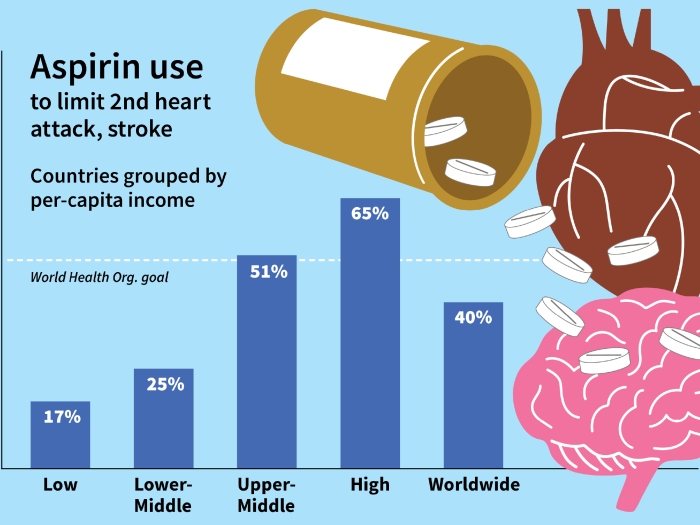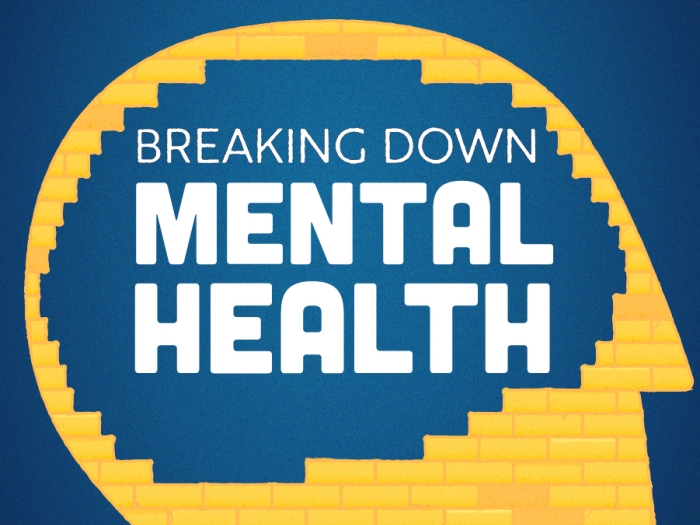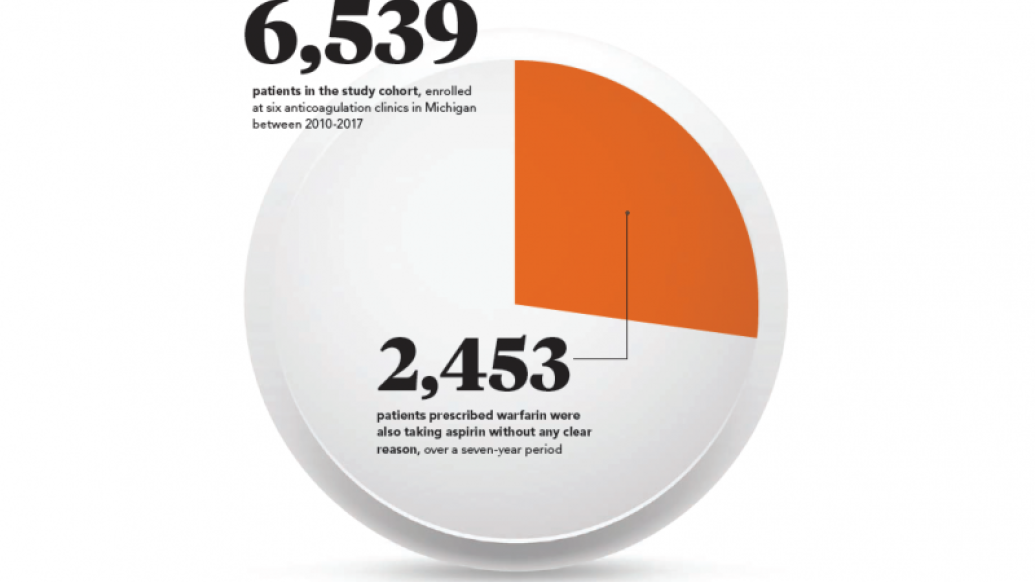
A daily aspirin is a generally safe therapy for people who need help preventing heart attacks or stroke. But Michigan Medicine research has found reason to reconsider aspirin use when a patient is also taking an anticoagulant. The study, published in JAMA Internal Medicine, reveals a significant increase in adverse outcomes for people taking both aspirin and warfarin, a popular anticoagulant often prescribed for stroke prevention in patients with atrial fibrillation (AFib) and venous thromboembolism (VTE). U-M researchers are leading the charge for change in Michigan, working with anticoagulation clinics to identify people who are using multiple blood thinners, and to determine if both are necessary, says senior author Geoffrey Barnes (M.D. 2007, Residencies 2011 and 2014), assistant professor of internal medicine and a member of U-M's Institute for Healthcare Policy and Innovation.
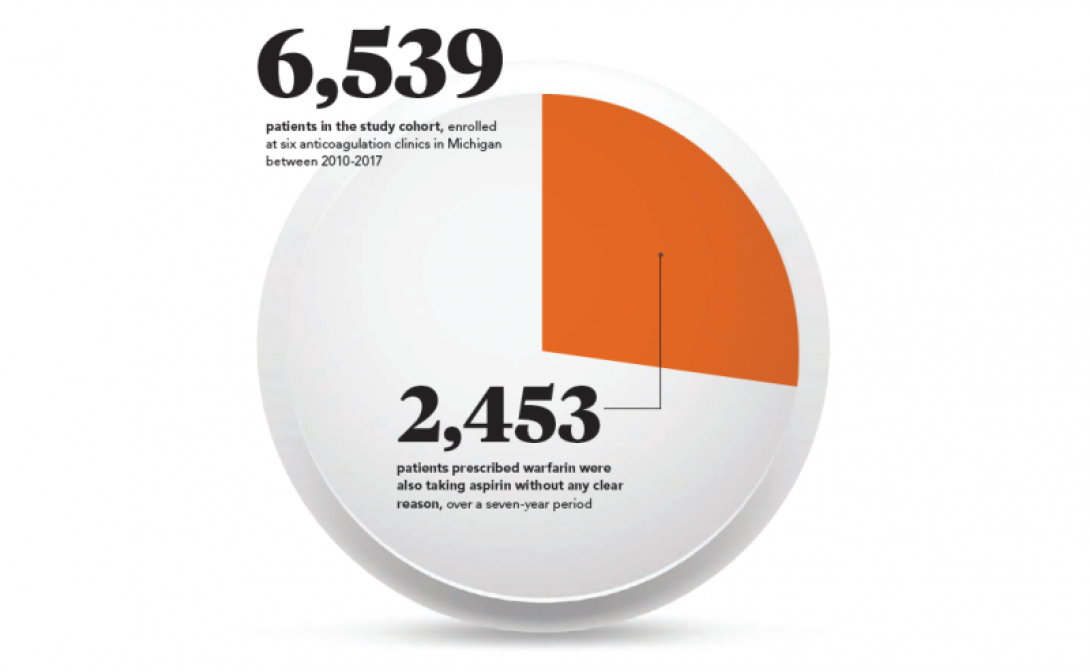
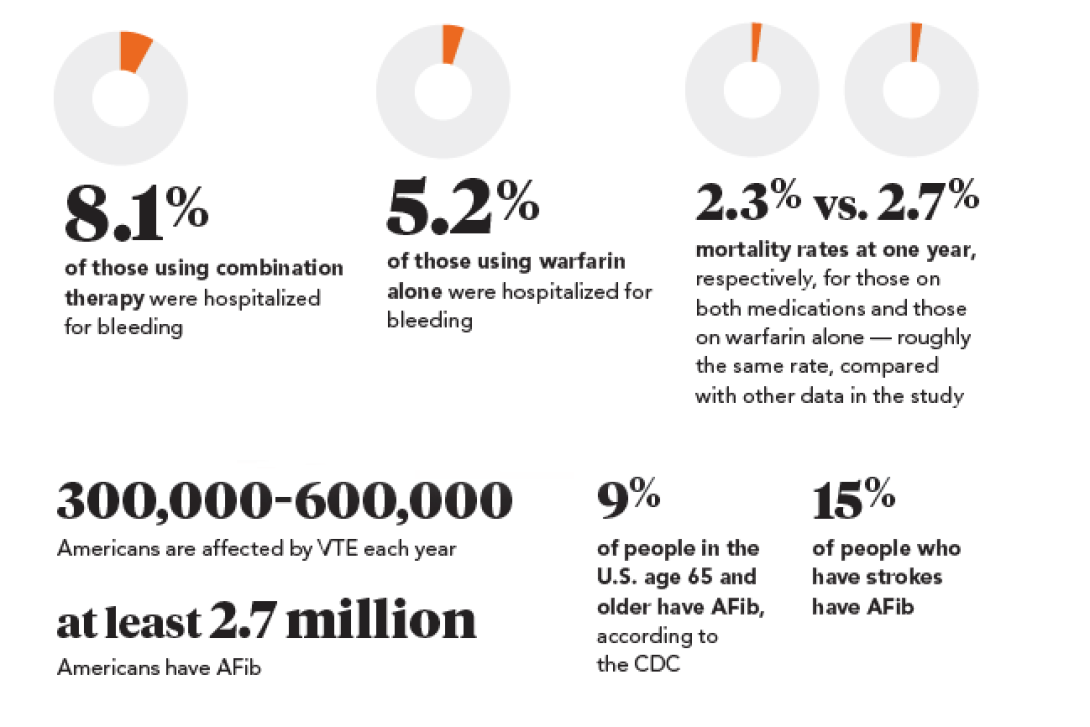
Disclosure: Barnes has received grant support from Pfizer/Bristol-Myers Squibb, NHLBI, and Blue Cross Blue Shield of Michigan. He also has received consulting fees from Pfizer/Bristol-Myers Squibb, Janssen, and Portola.
